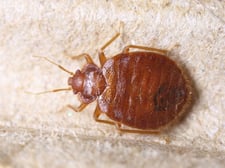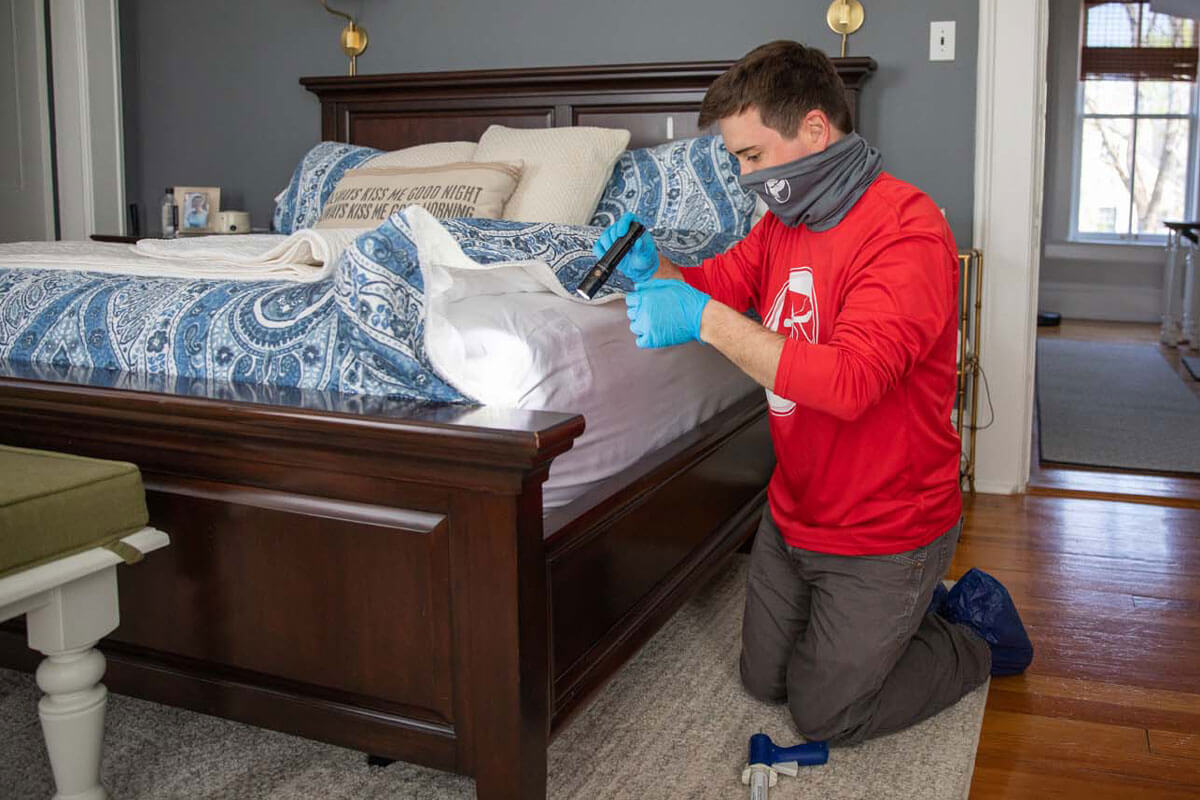Finest Kings Pest Control Cincinnati: Premier Exterminators
Finest Kings Pest Control Cincinnati: Premier Exterminators
Blog Article
A Failure of the Various Kinds of Parasite Control Solutions
In the realm of bug control, a multitude of techniques exist to fight the visibility and address of unwanted creatures. From the standard usage of chemical pesticides to more ingenious organic control remedies, each approach provides unique benefits and constraints. As we navigate through the diverse landscape of bug control remedies, recognizing the intricacies of each method ends up being vital in establishing one of the most effective course of action. Stay tuned as we check out the nuanced world of insect control methods and find just how each kind plays an one-of-a-kind duty in guarding our settings.
Chemical Pesticides
Chemical chemicals are frequently utilized in insect control to efficiently eliminate a broad range of pests and various other insects. These pesticides function by targeting the anxious system of the insects, disrupting their regular features, and eventually leading to their death. Using chemical pesticides has been a staple in the pest control sector for decades due to their performance and quick outcomes.

However, it is important to make use of chemical pesticides with care due to their potential hazardous impacts on the atmosphere and non-target types. Incorrect application or overuse of these chemicals can bring about air pollution, injury to beneficial insects, and resistance development in pest populations. Therefore, it is essential to comply with safety guidelines and regulations when using chemical pesticides for pest control.
Biological Control Techniques
Taking into consideration the prospective environmental influences and dangers connected with chemical pesticides, organic control methods supply an even more sustainable strategy to handling parasite populaces. Biological control includes using all-natural enemies, such as bloodsuckers, pathogens, and killers, to reduce parasite populations. This approach is frequently extra targeted, affecting just the specific insect varieties while reducing injury to advantageous bugs, human beings, and the environment.

One benefit of biological control is its long-term efficiency. Once established, natural enemies can assist manage pest populations continually without the demand for repeated applications of chemicals. Additionally, organic control is typically a lot more affordable and can aid lower chemical resistance in insect populations with time. On the whole, biological control methods offer a lasting and eco-friendly solution to pest monitoring.

Mechanical Parasite Control
Mechanical insect control entails the physical manipulation or removal of bugs to handle their populations efficiently. This approach is often utilized along with various other pest control techniques for detailed parasite management. One common example of mechanical insect control is utilizing catches to record insects or rodents. These traps can be established in calculated places where parasites are recognized to dwell, helping to reduce their numbers.
Another mechanical approach is the use of obstacles such as displays, webs, or fencings to block pests from getting in specific locations. By literally preventing pests from accessing a location, the possibility of infestations or damage can be significantly reduced. Additionally, manual soil treatment for termite control methods like handpicking pests off plants or structures can be reliable for smaller-scale invasions.
While mechanical insect control methods can be labor-intensive, they supply a non-chemical choice that can be lasting and ecologically friendly. By targeting pests straight, mechanical control methods can help keep bug populaces in check without counting on pesticides.
All-natural Treatments
Using natural treatments for pest control offers a environment-friendly and lasting approach to handling pest populaces without considering chemical interventions. Natural treatments entail making use of materials originated from plants, minerals, or other normally occurring sources to prevent or get rid of bugs. For circumstances, planting particular herbs like basil, mint, or lavender around your property can repel insects as a result of their strong fragrances. Diatomaceous earth, a powder made from fossilized algae, can be utilized to fight pests like ants, roaches, and bed bugs by dehydrating their exoskeletons.
Furthermore, vital oils such as tea tree oil or neem oil have insecticidal properties that can efficiently control pests while being secure for the environment. Another natural remedy is presenting valuable bugs like ladybugs or praying mantises to your yard to victimize damaging pests. By incorporating these all-natural options right into parasite administration approaches, people can decrease their reliance on synthetic chemicals and promote a much healthier, more well balanced ecological community.
Integrated Insect Management
Integrated Parasite Administration (IPM) is a detailed approach that combines numerous techniques to properly control pest populations while reducing risks to human health and insect & pest repellent wellness and the environment. IPM involves the combination of numerous insect control methods such as organic control, environment manipulation, adjustment of cultural practices, and making use of resistant crop selections. By utilizing a mix of these strategies, IPM intends to lower dependence on chemical pesticides, which can have negative impacts on ecological communities and human wellness.
One secret element of IPM is the emphasis on prevention. By implementing procedures to avoid insect infestations before they happen, such as preserving proper sanitation and sealing entry factors, the need for reactive bug control procedures is lessened. Surveillance and normal evaluations play an essential role in IPM, permitting early discovery of pest concerns and timely intervention.
Verdict
In verdict, the various types of parasite control remedies offer a range of options for effectively managing bug invasions. Biological control approaches make use of all-natural killers to regulate insects. Integrated you can check here Bug Monitoring integrates multiple methods for a holistic technique to pest control.
Chemical pesticides are commonly used in parasite control to effectively remove a broad array of insects and various other bugs.Mechanical pest control involves the physical adjustment or elimination of parasites to handle their populations properly (Kings exterminator cincinnati).Making use of all-natural remedies for bug control supplies a lasting and eco-friendly technique to taking care of parasite populations without resorting to chemical interventions.Integrated Pest Management (IPM) is a detailed technique that incorporates different strategies to effectively regulate pest populaces while reducing risks to human wellness and the setting.In final thought, the numerous types of parasite control services use a variety of options for properly handling parasite infestations
Report this page